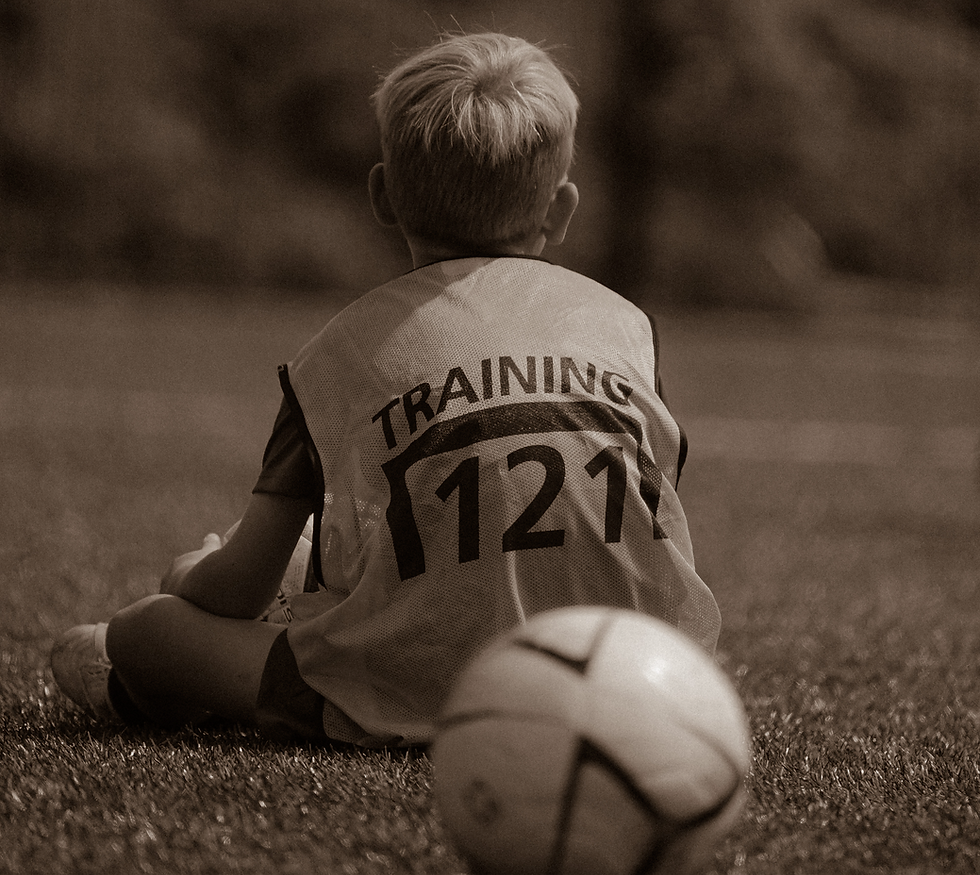The Parent’s Guide to Choosing Football Training in Dublin
- Gary Daly
- Sep 15, 2025
- 4 min read
Introduction
Dublin is full of football opportunities—from grassroots clubs and school teams to academies and private coaching. For parents, the choice can feel overwhelming. Should your child just stick with the local club? Do they need one-to-one coaching? Is there a way to balance skill development and enjoyment?
At Training121, we’ve coached more than 3,000 young Irish players since 2018. Our clients range from beginners just starting out, to present-day Irish internationals. Therefore, we're uniquely positioned to help you understand the different training options available in Dublin, and how to choose what’s best for your child.

Types of Football Training in Dublin
Most children start their football journey with a grassroots club. These community clubs are excellent for building friendships and experiencing competitive matches. The drawback is that team training often focuses on tactics and match preparation, leaving little time for individual skill development.
Some families turn to one-to-one coaching. This can provide personalised feedback and attention, but it comes with limitations. Sessions are often expensive and don’t replicate the decision-making demands of real games. Younger children, in particular, can feel isolated without teammates to learn alongside.
Small-group supplemental training, which is the Training121 model, offers a middle ground. With a coach-to-player ratio of between 1-to-8 to 1-to-12, every child receives feedback while still being challenged in realistic game situations. The group dynamic builds confidence and competition, making learning fun and effective.
What to Look for in a Coach
The quality of the coach is often more important than the type of training. Parents should prioritise coaches with outstanding communication skills, who have accumulated experience working across various age groups and levels.
Equally important is coaching style. The best coaches know how to balance encouragement with challenge. They can explain drills in simple terms and create an atmosphere where children feel safe to try, fail, and try again.

Location and Convenience
Dublin traffic and busy family schedules are no small consideration. The best training programme is one your child can attend consistently. Look for sessions that run after school or on weekends and choose locations that are realistic for your family. At Training121, we operate across Dublin, Kildare, Drogheda, and Wexford. This allows families to choose the venue that works best for them. Convenience often determines consistency, and consistency drives real progress.
Understanding Costs
Football training comes in many price brackets. Grassroots club fees are usually paid seasonally, often €300–500 per year. One-to-one coaching is the most expensive option, with sessions typically ranging from €40–80 per hour.
Small-group sessions balance affordability and value, usually costing between €15–25 per hour depending on your package. More importantly, value should be measured not just in euros but in the quality of development. For most children, the learning and enjoyment gained in small groups outweigh what they might get from private coaching alone.
Signs of a Good Training Environment
When you arrive at a session, the environment often tells you everything. Is it safe and well-supervised? Do the coaches know the children’s names? Are sessions structured with a clear progression, or do they feel improvised? Does it feel right?
A good programme combines technical skills, tactical awareness, physical development, and confidence-building. The best measure of all is your child’s face when they leave. If they are motivated, smiling, and eager to come back, you’ve likely found the right fit.

Common Questions
From our experience, parents often have a number of well-founded questions about supplemental training. We have listed a few that come to mind below, along with our answers.
At what age should my child start supplemental training?
Children as young as five benefit from fun, ball-mastery sessions that focus on enjoyment and confidence. More advanced skill and technical work is best introduced later, from around u10 onwards.
Does extra training interfere with club football?
Not at all. Supplemental sessions complement club football by focusing on skills and decision-making—aspects of training that clubs don’t always have time for.
How quickly will I see progress?
Parents typically notice improvements in confidence and technical sharpness within three-to-six weeks of consistent training.
Key TAKEAWAYS
Along with everything already said, we've listed some key takeaways to keep in mind when choosing a training environment for your child:
Look for qualified, vetted coaches (Garda vetting, child safeguarding, etc.).
Match the training type to your child’s needs: grassroots club, one-to-one coaching, or supplemental small-group sessions.
Prioritise safe and supportive environments.
Balance cost, convenience, and long-term development.
Choose programmes that build confidence and transferable match skills.

Conclusion
Choosing the right football training in Dublin comes down to understanding your child’s needs and balancing development with enjoyment. Grassroots clubs provide community and matches, and one-to-one coaching offers individual focus. But only small-group training delivers a unique blend of skill, confidence, and game awareness.
At Training121, our mission is simple: to help every child fall in love with the game while giving them the skills to succeed. Whether that means joining an academy, making the school team, or simply playing with confidence on Saturday or Sunday mornings, we're here to help guide their path. If you like what we're about, email us today at admin@training121.com to book your child in for a session.
Gary Daly
Co-Founder of Training121



